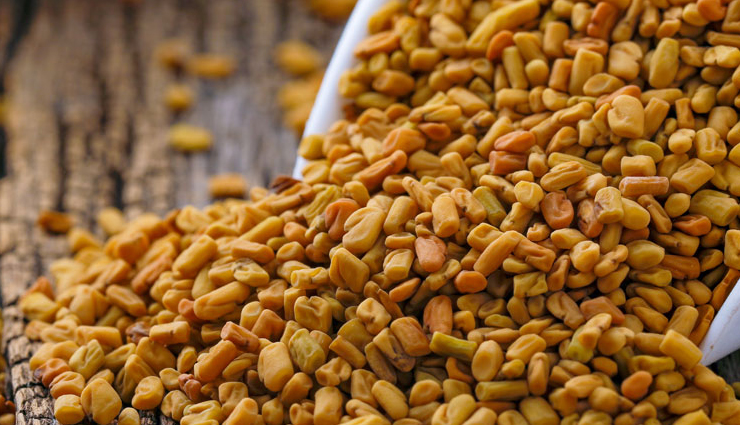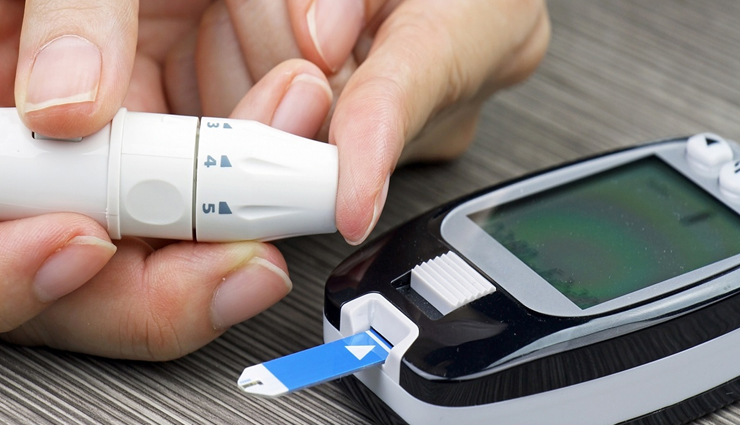- Home›
- Healthy Living›
- 10 Amazing Health Benefits Of Fenugreek Seeds
10 Amazing Health Benefits Of Fenugreek Seeds
By: Priyanka Maheshwari Sun, 24 Sept 2023 4:43:22

Fenugreek seeds, scientifically known as Trigonella foenum-graecum, are a versatile and nutrient-rich spice that has been used for centuries in various cuisines and traditional medicine systems. These small, golden-brown seeds are not only valued for their distinct flavor but also for their numerous health benefits. In this introduction, we will explore the many ways in which fenugreek seeds contribute to overall health and well-being.
Fenugreek seeds are a common inclusion in traditional culinary practices, and their numerous health advantages have been extensively researched. When regularly incorporated into one's diet, this herb can have a range of positive effects on overall well-being.
Originating from Central and Southeast Asia, particularly India, fenugreek is among the oldest medicinal plants. However, it is also cultivated in regions like North Africa, the Mediterranean, and the United States.
As an annual herb belonging to the Fabaceae family, the same family as soy, fenugreek has been used for generations as both a spice and a flavor enhancer. India dominates global fenugreek production, with approximately 80% originating from the state of Rajasthan.
Fenugreek offers benefits to both females and males, including the potential to boost hormone levels, stabilize blood sugar, and enhance insulin production. As a result, it proves highly effective for individuals managing diabetes. Additionally, it may provide relief for respiratory issues like mild asthma.
Here's an overview of the nutritional value of fenugreek seeds per 100 grams:
Calories: 323
Protein: 23 grams
Carbohydrates: 58 grams
Dietary Fiber: 25 grams
Fat: 6.4 grams
Vitamins:
Vitamin B6 (Pyridoxine): 0.6 milligrams (29% of the Daily Value)
Vitamin C: 3 milligrams (5% of the Daily Value)
Folate (Vitamin B9): 57 micrograms (14% of the Daily Value)
Niacin (Vitamin B3): 1.6 milligrams (8% of the Daily Value)
Riboflavin (Vitamin B2): 0.37 milligrams (22% of the Daily Value)
Thiamin (Vitamin B1): 0.33 milligrams (22% of the Daily Value)
Minerals:
Iron: 33 milligrams (184% of the Daily Value)
Magnesium: 191 milligrams (48% of the Daily Value)
Phosphorus: 296 milligrams (30% of the Daily Value)
Potassium: 770 milligrams (22% of the Daily Value)
Calcium: 176 milligrams (18% of the Daily Value)
Zinc: 2.5 milligrams (17% of the Daily Value)
Copper: 1.1 milligrams (55% of the Daily Value)
Manganese: 1.23 milligrams (61% of the Daily Value)
Selenium: 6.3 micrograms (9% of the Daily Value)
Health Benefits of Fenugreek Seeds

# Blood Sugar Regulation
Fenugreek seeds have been shown to help regulate blood sugar levels by improving insulin sensitivity. They contain soluble fiber, which slows down the absorption of sugars in the digestive tract, leading to better glycemic control. This can be particularly beneficial for individuals with diabetes or those at risk of developing the condition.

# Digestive Health
The soluble fiber in fenugreek seeds can aid in digestion by preventing constipation and promoting regular bowel movements. They may also help alleviate symptoms of indigestion and heartburn.

# Weight Management
Fenugreek seeds can promote a feeling of fullness and reduce appetite due to their high fiber content. This can be helpful for those looking to manage their weight and control calorie intake.

# Heart Health
Some studies suggest that fenugreek seeds may help lower cholesterol levels and reduce the risk of heart disease. The presence of compounds like saponins and fiber can contribute to improved cardiovascular health.

# Anti-Inflammatory Properties
Fenugreek seeds contain compounds with anti-inflammatory properties, which can help reduce inflammation in the body. This may be beneficial for individuals with inflammatory conditions such as arthritis.

# Breast Milk Production
Fenugreek is often used as a galactagogue, a substance that can increase breast milk production in nursing mothers. However, it's important to consult with a healthcare professional before using fenugreek for this purpose.

# Respiratory Health
Fenugreek seeds may provide relief from respiratory issues such as mild asthma and bronchitis. They have been used traditionally for their expectorant and anti-inflammatory properties.

# Antioxidant Effects
Fenugreek seeds contain antioxidants that help combat oxidative stress in the body. These antioxidants may contribute to overall health and reduce the risk of chronic diseases.

# Hormone Regulation
Fenugreek seeds contain compounds that may help regulate hormones, particularly in males. They have been associated with increased testosterone levels, potentially benefiting reproductive health.

# Skin and Hair Health
Fenugreek seeds can be used externally for skincare and haircare. They are often included in masks and oils to promote healthy skin and hair growth.





